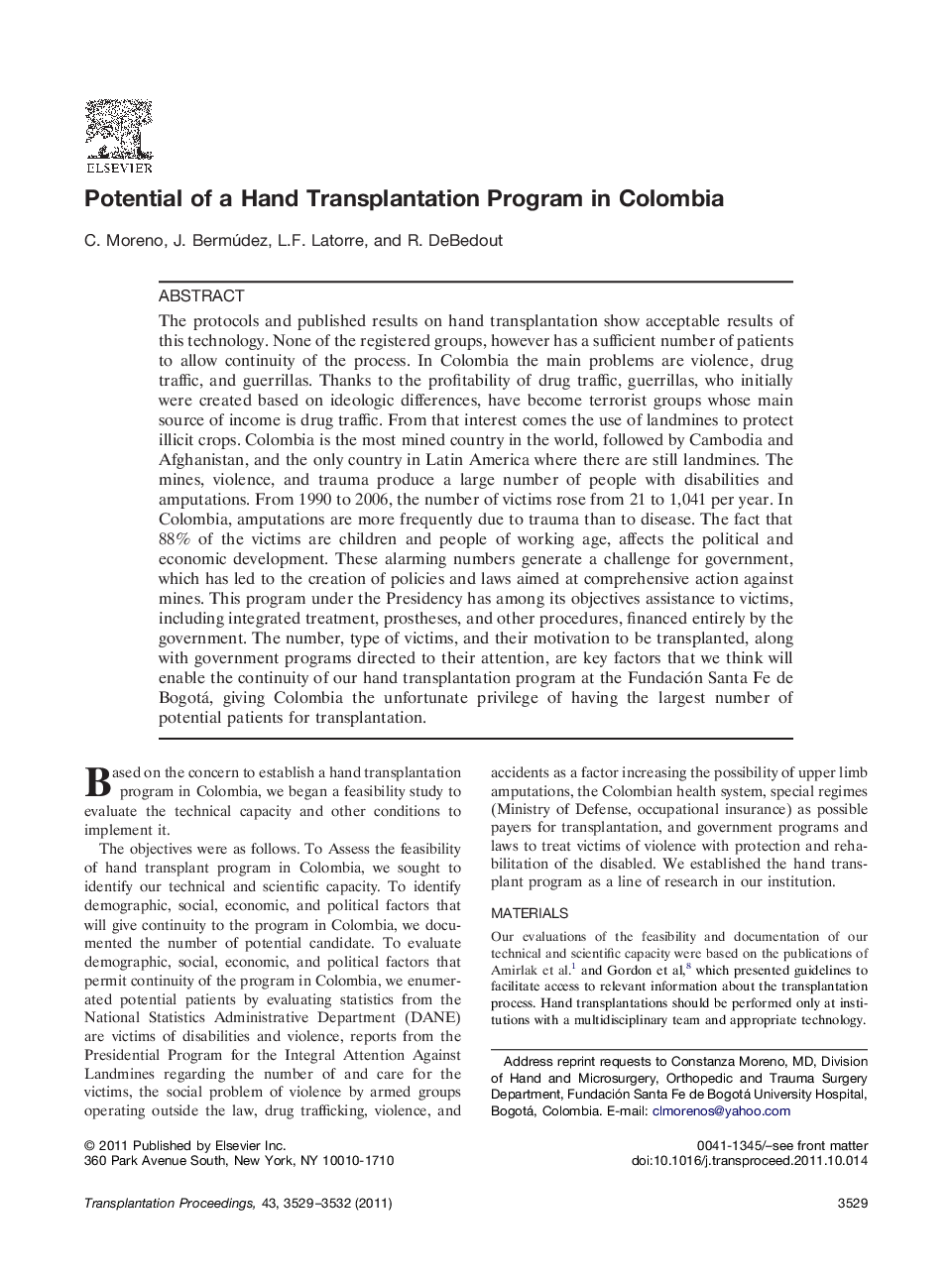| Article ID | Journal | Published Year | Pages | File Type |
|---|---|---|---|---|
| 4258635 | Transplantation Proceedings | 2011 | 4 Pages |
The protocols and published results on hand transplantation show acceptable results of this technology. None of the registered groups, however has a sufficient number of patients to allow continuity of the process. In Colombia the main problems are violence, drug traffic, and guerrillas. Thanks to the profitability of drug traffic, guerrillas, who initially were created based on ideologic differences, have become terrorist groups whose main source of income is drug traffic. From that interest comes the use of landmines to protect illicit crops. Colombia is the most mined country in the world, followed by Cambodia and Afghanistan, and the only country in Latin America where there are still landmines. The mines, violence, and trauma produce a large number of people with disabilities and amputations. From 1990 to 2006, the number of victims rose from 21 to 1,041 per year. In Colombia, amputations are more frequently due to trauma than to disease. The fact that 88% of the victims are children and people of working age, affects the political and economic development. These alarming numbers generate a challenge for government, which has led to the creation of policies and laws aimed at comprehensive action against mines. This program under the Presidency has among its objectives assistance to victims, including integrated treatment, prostheses, and other procedures, financed entirely by the government. The number, type of victims, and their motivation to be transplanted, along with government programs directed to their attention, are key factors that we think will enable the continuity of our hand transplantation program at the Fundación Santa Fe de Bogotá, giving Colombia the unfortunate privilege of having the largest number of potential patients for transplantation.
